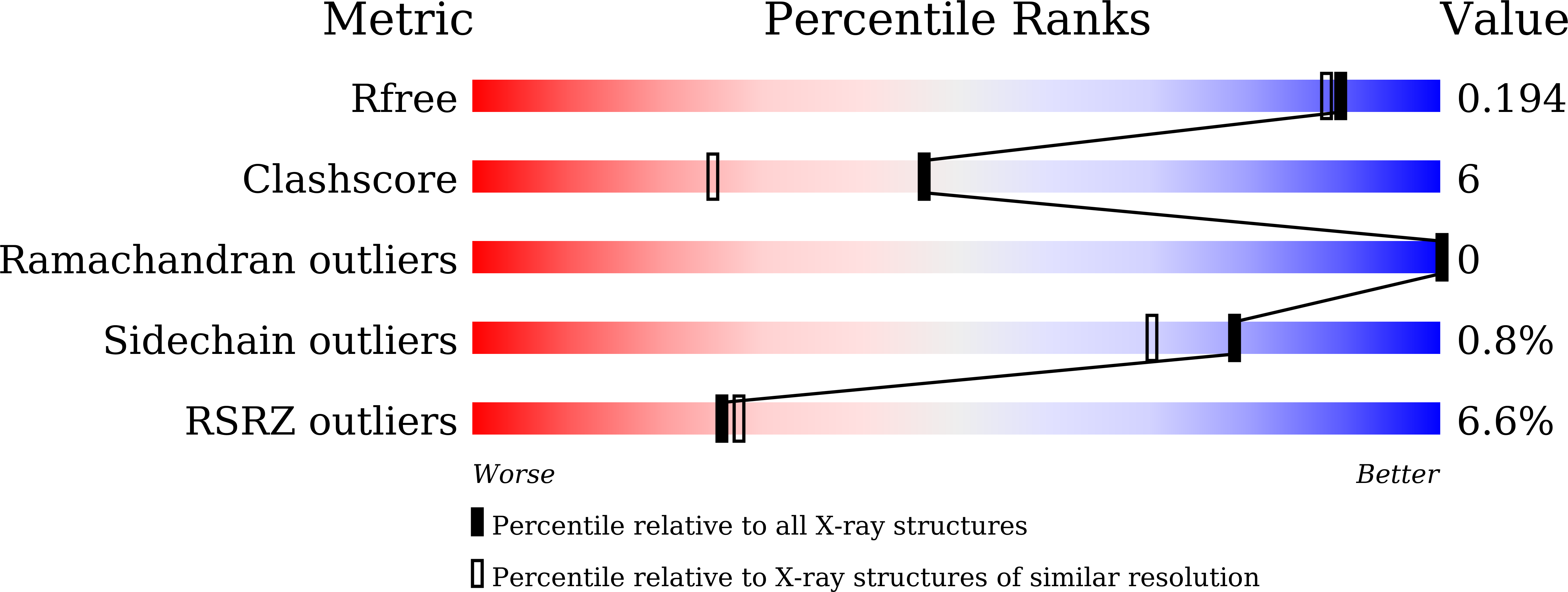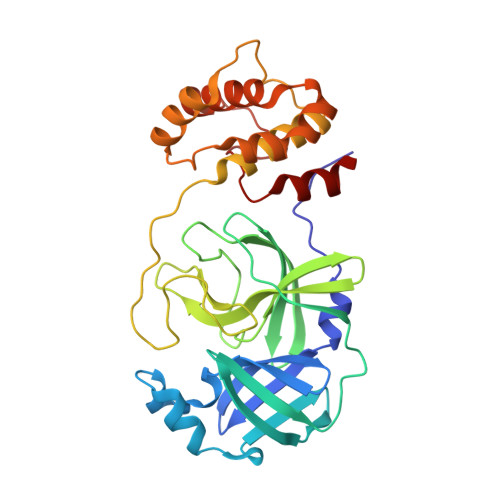Expanding the utilization of binding pockets proves to be effective for noncovalent small molecule inhibitors against SARS-CoV-2 M pro.
Yang, Q., Huang, X., Zhang, H., Sun, J., Tang, J., Chen, Z., Liu, L., Liu, M., Sun, Z., Tang, Z., Wei, D., Wang, D., Wang, Y., Yan, M., Zhao, L., Zhu, A., Zhong, Y., Yang, H., Zhao, Y., Dai, J., Shi, Y., Huang, B., Zhang, W., Zhao, J., Chen, X., Rao, Z., Peng, W.(2025) Eur J Med Chem 289: 117497-117497
- PubMed: 40090296
- DOI: https://doi.org/10.1016/j.ejmech.2025.117497
- Primary Citation of Related Structures:
9KR5, 9KSH, 9KSI, 9KSJ, 9KSK - PubMed Abstract:
The coronavirus disease 2019 (COVID-19) pandemic, caused by severe acute respiratory syndrome coronavirus 2 (SARS-CoV-2), has resulted in millions of deaths and continues to pose serious threats to global public health. The main protease (M pro ) of SARS-CoV-2 is crucial for viral replication and its conservation, making it an attractive drug target. Here, we employed a structure-based drug design strategy to develop and optimize novel inhibitors targeting SARS-CoV-2 M pro . By fully exploring occupation of the S1, S2, and S3/S4 binding pockets, we identified eight promising inhibitors with half-maximal inhibitory concentration (IC 50 ) values below 20?nM. The cocrystal structure of M pro with compound 10 highlighted the crucial roles of the interactions within the S3/S4 pockets in inhibitor potency enhancement. These findings demonstrated that expanding the utilization of these binding pockets was an effective strategy for developing noncovalent small molecule inhibitors that target SARS-CoV-2 M pro . Compound 4 demonstrated outstanding in vitro antiviral activity against wild-type SARS-CoV-2 with an EC 50 of 9.4?nM. Moreover, oral treatment with compounds 1 and 9 exhibited excellent antiviral potency and substantially ameliorated virus-induced tissue damage in the lungs of Omicron BA.5-infected K18-human ACE2 (K18-hACE2) transgenic mice, indicating that these novel noncovalent inhibitors could be potential oral agents for the treatment of COVID-19.
Organizational Affiliation:
State Key Laboratory of Respiratory Disease, Guangzhou Medical University, Guangzhou, 511436, China; Guangzhou National Laboratory, Guangzhou, 510005, China.

















